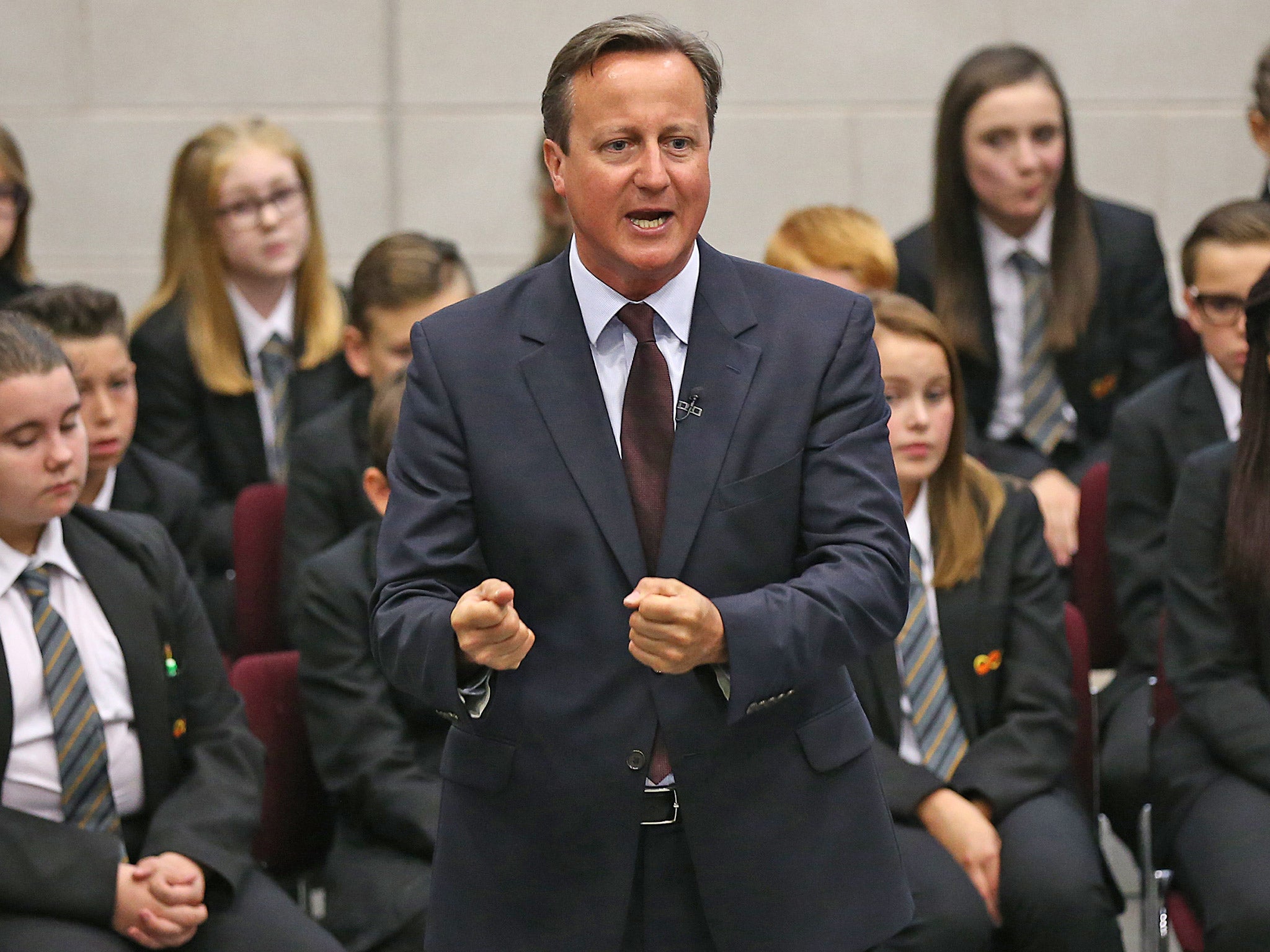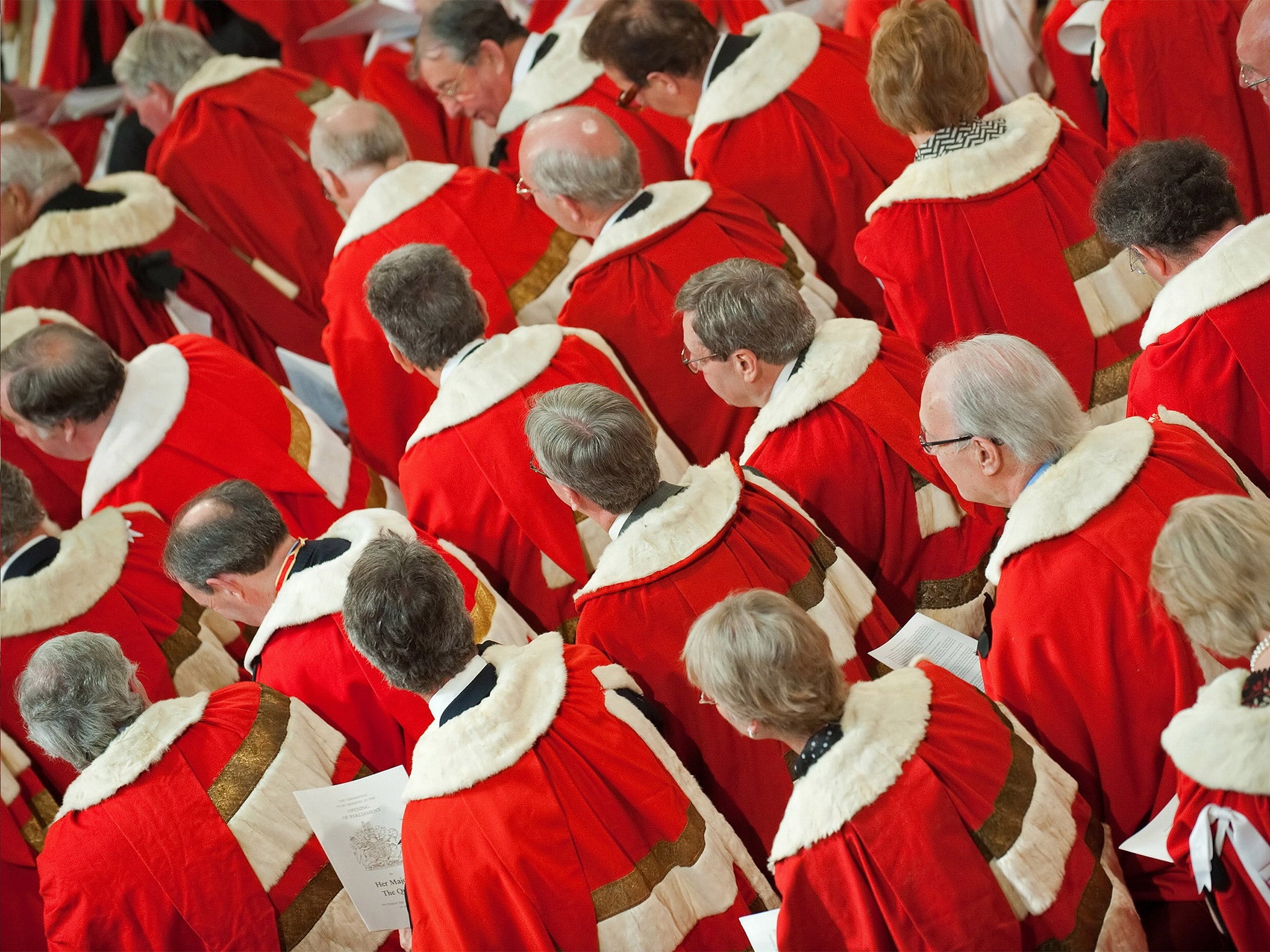David Cameron set for showdown in Lords after MPs block plan to let 16 and 17-year-olds vote in EU referendum
Clash raises prospect of a game of 'parliamentary ping pong' over the contentious issue

David Cameron is heading for a fresh showdown with the House of Lords after MPs overturned a vote by peers to allow 16 and 17-year-olds to take part in his promised referendum on European Union membership.
Downing Street urged peers to drop their support for lowering the voting age, but opposition parties in the Lords have insisted they would press ahead with their attempt to widen the franchise for the referendum.
The clash raised the prospect of a game of “parliamentary ping pong” next week over the contentious issue, further inflaming the constitutional row between ministers and the Lords over the powers of the Upper Chamber.
It was brought to a head in October when the Lords rejected George Osborne’s moves to cut spending on tax credits by £4.4bn, a key factor in the Chancellor’s decision to abandon the plan.
That defeat prompted Mr Cameron to order an urgent review of the powers of the House of Lords, where the Tories are heavily outnumbered by Labour and Lib Dem peers.
The Prime Minister’s spokeswoman said MPs had voted five times against reducing the voting age and added: “The important thing is that the Commons has once again made clear its view.”

Ministers have been accused of “political chicanery” by attempting to invoke “financial privilege”, which reserves tax and spending decisions to the Commons, in an attempt to get their way over the issue.
The Independent understands that Labour, Liberal Democrat and crossbench peers are examining ways of dodging the move and are preparing to defy the government on 14 December, setting the scene for a trial of strength between the two Houses.
In the Commons, MPs rejected lowering the referendum voting age to 16 by 303 to 253, a majority of 50. It overturned a vote in the Lords last month by a majority of 82 in favour of the move.
The Cabinet Office Minister, John Penrose, argued that it would be wrong to change the “tried and tested” general election franchise for a single poll.
He said: “It is something which should be considered for all elections, collectively and in the round. Equally, given the understandable sensitivities surrounding the EU referendum making such a fundamental change to the franchise for this vote alone but not for others would inevitably and perhaps justifiably lead to accusations of trying to fix the franchise in favour of either the remain or the leave campaign.”
He added: "We currently have a patchwork of restrictions which apply to young people from the age of 16 all the way up to 21 - there is no clear point at which a person becomes an adult but it is 18 that society usually draws the line.”
But the Shadow Europe minister, Pat McFadden, said major constitutional referendums were a “once in a generation choice, perhaps a once in a lifetime choice” about Britain’s future.
“Our contention is very simple, it is that the young people of this country deserve a say in the decision which will chart our country's future,” he told the Commons.
Labour, the SNP and Lib Dems all support allowing 16 and 17-year-olds, who were allowed to vote in last year's referendum on Scottish independence, to participate in the EU referendum due by the end of the 2017.
Stephen Gethins, the SNP MP for North East Fife, said: “This is a question of democracy and the minister talked about this being a Westminster bubble issue. I don't see how giving more people the vote, more people the opportunity to participate in a democratic process, is a Westminster bubble issue - in fact quite the opposite.
“Those who will be 16 on the day of the European referendum will, I’m afraid, have to live with the decision longer than most of us in this chamber.”
Join our commenting forum
Join thought-provoking conversations, follow other Independent readers and see their replies
Comments
Bookmark popover
Removed from bookmarks